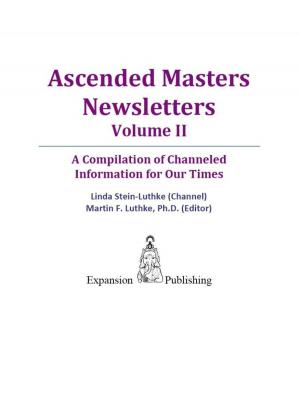| Author: | Nick McNaughton | ISBN: | 9781456610265 |
| Publisher: | eBookIt.com | Publication: | September 20, 2012 |
| Imprint: | eBookIt.com | Language: | English |
| Author: | Nick McNaughton |
| ISBN: | 9781456610265 |
| Publisher: | eBookIt.com |
| Publication: | September 20, 2012 |
| Imprint: | eBookIt.com |
| Language: | English |
An Open Door of Liberty is about how religious freedom came to be an important part of the basic law of the United States. There has been much discussion and some controversy over the years as to what a religiously free society requires of its citizens and its government, but there is widespread agreement that Americans should have an absolute right to maintain their own religious (or unreligious) opinions, exceptionally broad rights to their religious practices (or the right not to practice) and that government should not establish any set of beliefs as an "official" religion.
It was not always so. At the dawn of the colonial era in the early 1600s the newly-formed colonies followed the then-common practice of Europe and particularly England by demanding adherence to the beliefs and practices of a state-sponsored church. Massachusetts, established by Puritan dissenters from the official Anglican church, enforced its own interpretation of Christian theology, exiling anyone from their society who would not conform. Virginia, a bastion of orthodox Anglicanism, admitted no one who would not acknowledge the king as the head of the only true church.
An Open Door of Liberty describes how generations of religious dissidents changed the culture and eventually the law. The story includes the founding of religiously free Rhode Island by Roger Williams, Anne Hutchinson and other Massachusetts exiles, the efforts of English Catholics led by the Calverts to create a tolerant haven in Maryland, the role of the Quakers throughout the colonies in challenging oppressive laws at considerable physical peril as well as the establishment of Pennsylvania by Quaker William Penn as one of the most tolerant societies of its day and the role of the early Baptists from John Clarke to later figures such as Isaac Backus and their advocacy of "soul liberty." Through their efforts and those of others, most Americans came to agree with Thomas Jefferson that "Almighty God hath created the mind free" and supported the religion clauses of the First Amendment as well as similar laws in the first constitutions of the newly independent states.
Also discussed in this book are some of the ramifications of attempting to create a religiously free society. For example, what is meant by "separation of church and state" and why does use of this phrase sometimes result in arguments? How did breaking apart the church-state power structure help make democracy possible? If religious freedom is part of our basic law why have some religious groups been subject to hostility and violations of their rights? These topics and other aspects of religious freedom have been the subject of their own detailed works, but the overview contained in An Open Door of Liberty helps give some context to the subject.
It was not always so. At the dawn of the colonial era in the early 1600s the newly-formed colonies followed the then-common practice of Europe and particularly England by demanding adherence to the beliefs and practices of a state-sponsored church. Massachusetts, established by Puritan dissenters from the official Anglican church, enforced its own interpretation of Christian theology, exiling anyone from their society who would not conform. Virginia, a bastion of orthodox Anglicanism, admitted no one who would not acknowledge the king as the head of the only true church.
An Open Door of Liberty describes how generations of religious dissidents changed the culture and eventually the law. The story includes the founding of religiously free Rhode Island by Roger Williams, Anne Hutchinson and other Massachusetts exiles, the efforts of English Catholics led by the Calverts to create a tolerant haven in Maryland, the role of the Quakers throughout the colonies in challenging oppressive laws at considerable physical peril as well as the establishment of Pennsylvania by Quaker William Penn as one of the most tolerant societies of its day and the role of the early Baptists from John Clarke to later figures such as Isaac Backus and their advocacy of "soul liberty." Through their efforts and those of others, most Americans came to agree with Thomas Jefferson that "Almighty God hath created the mind free" and supported the religion clauses of the First Amendment as well as similar laws in the first constitutions of the newly independent states.
Also discussed in this book are some of the ramifications of attempting to create a religiously free society. For example, what is meant by "separation of church and state" and why does use of this phrase sometimes result in arguments? How did breaking apart the church-state power structure help make democracy possible? If religious freedom is part of our basic law why have some religious groups been subject to hostility and violations of their rights? These topics and other aspects of religious freedom have been the subject of their own detailed works, but the overview contained in An Open Door of Liberty helps give some context to the subject.
An Open Door of Liberty is about how religious freedom came to be an important part of the basic law of the United States. There has been much discussion and some controversy over the years as to what a religiously free society requires of its citizens and its government, but there is widespread agreement that Americans should have an absolute right to maintain their own religious (or unreligious) opinions, exceptionally broad rights to their religious practices (or the right not to practice) and that government should not establish any set of beliefs as an "official" religion.
It was not always so. At the dawn of the colonial era in the early 1600s the newly-formed colonies followed the then-common practice of Europe and particularly England by demanding adherence to the beliefs and practices of a state-sponsored church. Massachusetts, established by Puritan dissenters from the official Anglican church, enforced its own interpretation of Christian theology, exiling anyone from their society who would not conform. Virginia, a bastion of orthodox Anglicanism, admitted no one who would not acknowledge the king as the head of the only true church.
An Open Door of Liberty describes how generations of religious dissidents changed the culture and eventually the law. The story includes the founding of religiously free Rhode Island by Roger Williams, Anne Hutchinson and other Massachusetts exiles, the efforts of English Catholics led by the Calverts to create a tolerant haven in Maryland, the role of the Quakers throughout the colonies in challenging oppressive laws at considerable physical peril as well as the establishment of Pennsylvania by Quaker William Penn as one of the most tolerant societies of its day and the role of the early Baptists from John Clarke to later figures such as Isaac Backus and their advocacy of "soul liberty." Through their efforts and those of others, most Americans came to agree with Thomas Jefferson that "Almighty God hath created the mind free" and supported the religion clauses of the First Amendment as well as similar laws in the first constitutions of the newly independent states.
Also discussed in this book are some of the ramifications of attempting to create a religiously free society. For example, what is meant by "separation of church and state" and why does use of this phrase sometimes result in arguments? How did breaking apart the church-state power structure help make democracy possible? If religious freedom is part of our basic law why have some religious groups been subject to hostility and violations of their rights? These topics and other aspects of religious freedom have been the subject of their own detailed works, but the overview contained in An Open Door of Liberty helps give some context to the subject.
It was not always so. At the dawn of the colonial era in the early 1600s the newly-formed colonies followed the then-common practice of Europe and particularly England by demanding adherence to the beliefs and practices of a state-sponsored church. Massachusetts, established by Puritan dissenters from the official Anglican church, enforced its own interpretation of Christian theology, exiling anyone from their society who would not conform. Virginia, a bastion of orthodox Anglicanism, admitted no one who would not acknowledge the king as the head of the only true church.
An Open Door of Liberty describes how generations of religious dissidents changed the culture and eventually the law. The story includes the founding of religiously free Rhode Island by Roger Williams, Anne Hutchinson and other Massachusetts exiles, the efforts of English Catholics led by the Calverts to create a tolerant haven in Maryland, the role of the Quakers throughout the colonies in challenging oppressive laws at considerable physical peril as well as the establishment of Pennsylvania by Quaker William Penn as one of the most tolerant societies of its day and the role of the early Baptists from John Clarke to later figures such as Isaac Backus and their advocacy of "soul liberty." Through their efforts and those of others, most Americans came to agree with Thomas Jefferson that "Almighty God hath created the mind free" and supported the religion clauses of the First Amendment as well as similar laws in the first constitutions of the newly independent states.
Also discussed in this book are some of the ramifications of attempting to create a religiously free society. For example, what is meant by "separation of church and state" and why does use of this phrase sometimes result in arguments? How did breaking apart the church-state power structure help make democracy possible? If religious freedom is part of our basic law why have some religious groups been subject to hostility and violations of their rights? These topics and other aspects of religious freedom have been the subject of their own detailed works, but the overview contained in An Open Door of Liberty helps give some context to the subject.















